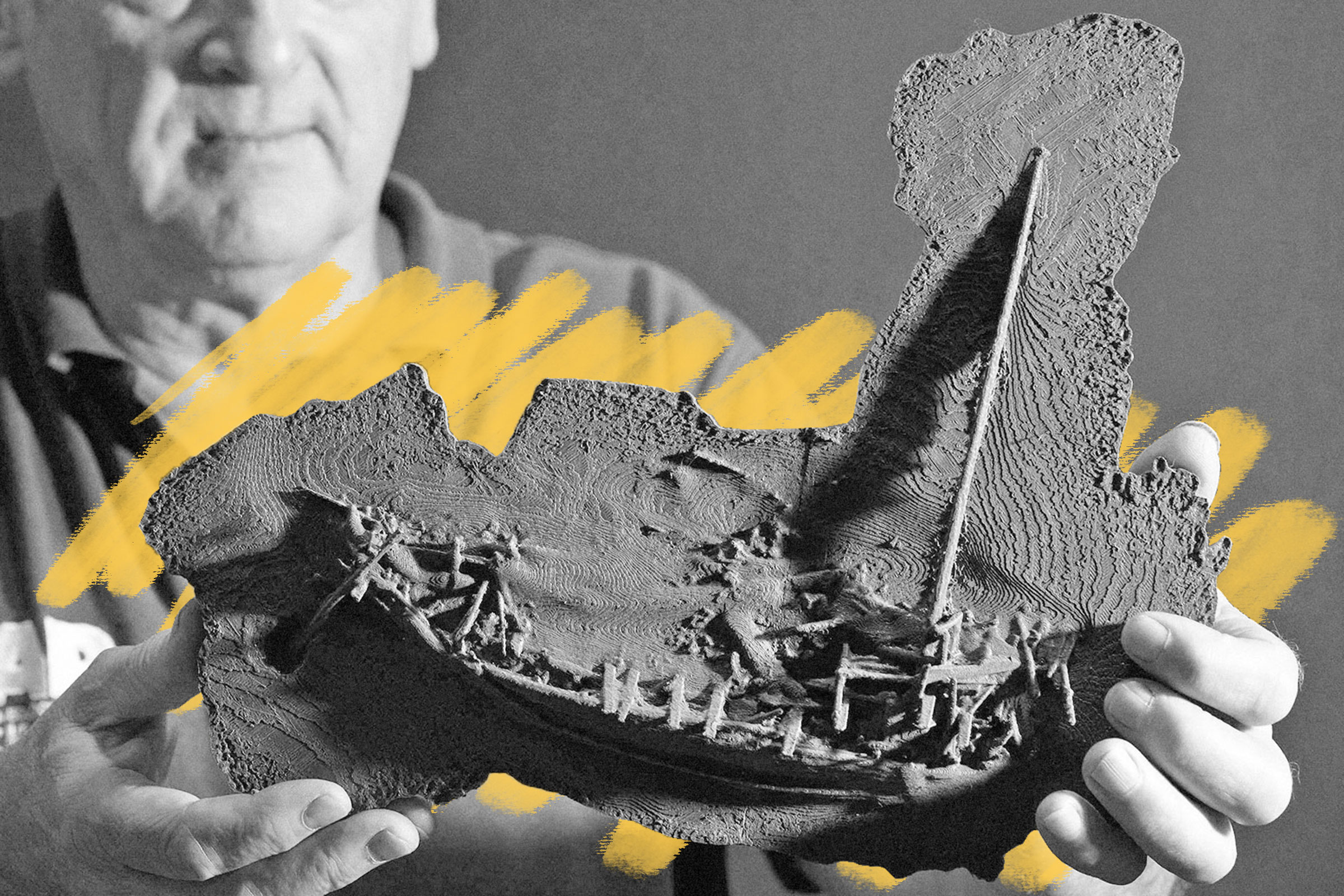 |
There's a 2,400-year-old ship at the bottom of the sea, and it's virtually intact. |
World History |
 |
| |
| The 75-foot vessel dates back to about 400 BCE and was found lying on its side roughly a mile below the water's surface. Its mast, rudders, and rowing benches were all in place and in excellent condition. The unique preservation is thanks to the Black Sea's deep waters being anoxic, meaning they don't contain oxygen. Beyond a distance of about 500 feet near the shore, the oxygen levels drop to zero — a crucial component in the preservation of organic materials such as wood. More than 60 other shipwrecks have also been discovered in the fruitful area. | |
| Before the ship was found, researchers had only seen its kind in ancient Greek artworks such as the Siren Vase, a piece of pottery depicting the ship of the mythical hero Odysseus. The discovery, according to the archaeology team that found the ship, serves as an important piece of a historical puzzle, providing a real-life look at previously theoretical shipbuilding and maritime practices. | |
 | |
 | |||||||||
By the Numbers | |||||||||
| |||||||||
| |||||||||
 | |||||||||
| |||||||||
The Titanic might be completely gone from the ocean floor by 2050. | |||||||||
| It was once considered a mighty engineering marvel, but the Titanic is fading away — and the remains may be completely gone in the not-too-distant future. Resting on the ocean floor since it tragically sunk in 1912, the iconic ship has been subject to a harsh marine environment, including not only the strong North Atlantic Current, but also microorganisms that feed on the iron in the ship. Research and tourism expeditions have contributed to the ship's decline, too, as submersibles sometimes land on or bump into the wreckage. Deterioration has been observed since the site of the famous shipwreck was found in 1985, and researchers from Halifax, Nova Scotia's Dalhousie University as well as UNESCO suggest it might only take a few more decades for it to entirely disappear. The U.S. company that owns the salvage rights to the site is planning another expedition to recover historic artifacts, but the government maintains that it should remain undisturbed and respected as the gravesite that it is. | |||||||||
 | |||
Recommended Reading | |||
 | |||
| | |||
 | |||
| | |||
| + Load more | |||
|





No comments:
Post a Comment